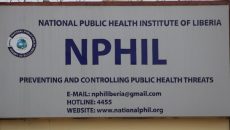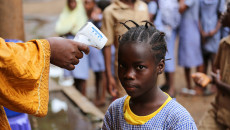MONROVIA, Montserrado – Dr. Makosa Fallah, deputy director general for technical services at the National Public Health Institute of Liberia, has confirmed the emergence of monkeypox in southeastern Liberia.
The symptoms of the viral disease are similar to that of smallpox and includes fever, headache, muscle aches and exhaustion. According to the U.S. Centers for Disease Control and Prevention, the virus kills 10 percent of the people it infects.
Though Fallah was not specific as to which of the five counties the disease occurred in, he said the disease was discovered last year in the region.
The southeastern region is comprised of five counties, including Grand Kru, Grand Gedeh, Maryland, RiverGee, Sinoe
Fallah said in 2017, the institute saw some cases of the disease in the region and that samples were collected and sent to the U.S., where the disease was confirmed.
“When there is a reemergence of a disease, the public needs to be informed,†he said.
Fallah explained that when NPHIL first announced about the reemergence of the disease, it did not declare an outbreak but rather said it was a newly emerging disease, which had not been seen since the 1970s. Â
He said NPHIL has not detected any additional cases of the disease. However, he advised the public to keep their environment clean and to avoid eating bush meat.
Fallah also warned the public not to eat sick and dead animals, especially monkeys and squirrels as he said “the virus can be passed on from animal to human.â€
He further advised the public to be mindful and report any signs and symptoms of the disease to the Health Ministry or by calling 4455 from any phone.
The emergence of the disease comes at a time when reports have said that the U.S. will be cutting 80 percent of its overseas support to disease prevention. The cuts, however, may not affect Liberia, as the CDC will begin supporting overseas programs in only ten countries beginning in October 2019. Those countries include Guatemala, India, Jordan, Kenya, Liberia, Nigeria, Senegal, Thailand, Uganda, and Vietnam.
The CDC and its partners were instrumental in establishing emergency operations centers to coordinate the response to Ebola and future health threats. Additionally, the agency provides assistance to the country’s National Malaria Control Program, in addition to providing technical and financial support to immunization programs.
Featured photo by Zeze Ballah
Â



